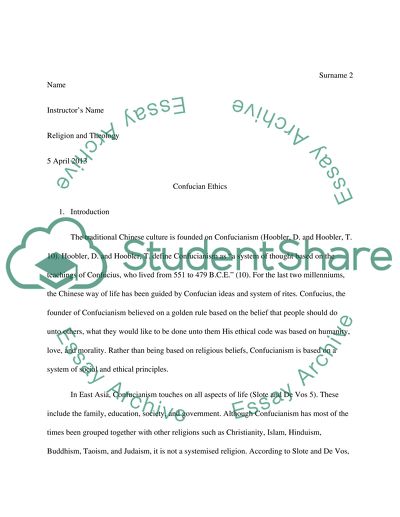Cite this document
(“Confucian Ethics Essay Example | Topics and Well Written Essays - 2000 words”, n.d.)
Confucian Ethics Essay Example | Topics and Well Written Essays - 2000 words. Retrieved from https://studentshare.org/religion-and-theology/1472880-confucian-ethics
Confucian Ethics Essay Example | Topics and Well Written Essays - 2000 words. Retrieved from https://studentshare.org/religion-and-theology/1472880-confucian-ethics
(Confucian Ethics Essay Example | Topics and Well Written Essays - 2000 Words)
Confucian Ethics Essay Example | Topics and Well Written Essays - 2000 Words. https://studentshare.org/religion-and-theology/1472880-confucian-ethics.
Confucian Ethics Essay Example | Topics and Well Written Essays - 2000 Words. https://studentshare.org/religion-and-theology/1472880-confucian-ethics.
“Confucian Ethics Essay Example | Topics and Well Written Essays - 2000 Words”, n.d. https://studentshare.org/religion-and-theology/1472880-confucian-ethics.


